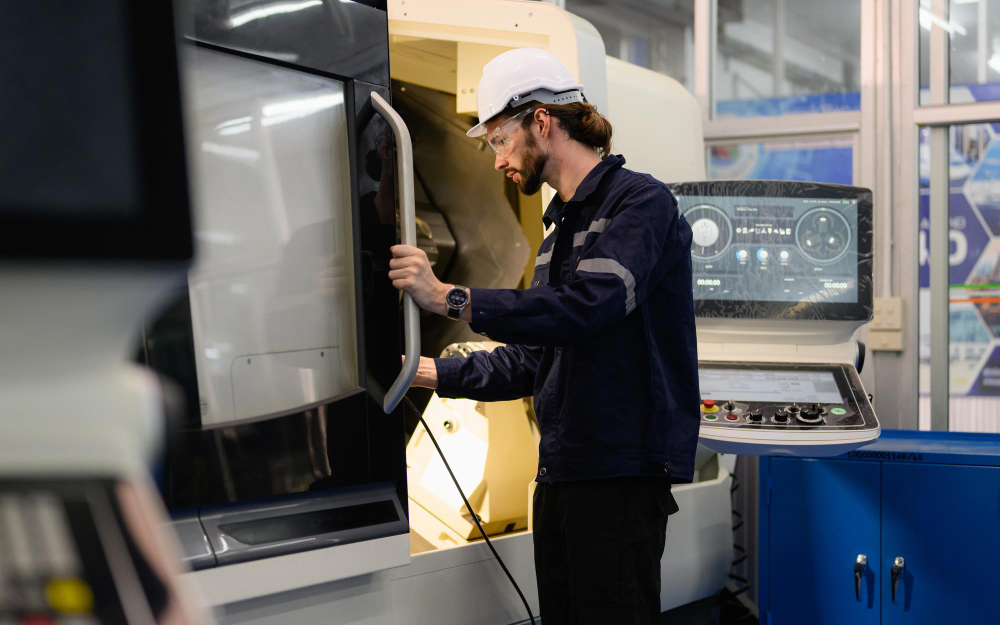CNC Machine Operator
CNC machine operators play a crucial role in mechanical workshops, as they are responsible for handling and operating sophisticated equipment such as CNC mills and lathes. These professionals not only operate the machines but are also capable of making minor adjustments to control programs, ensuring the precision required for machining mechanical parts.
Role and Skills of the CNC Operator
The main responsibility of a CNC machine operator is to transform raw or
semi-finished materials into
finished products. This process begins with the accurate reading of
technical drawings, based on which
the operator sets up the machine and selects the appropriate tools for
machining. Next, they configure the necessary
machining parameters, start production, and closely monitor each phase to ensure
the produced parts meet the
required high-quality standards.
The skills required for this role are broad and include knowledge of
metal technology, mechanical drawing,
and electromechanics, as well as familiarity with machine
tools and mechanical machining
processes. Knowledge of quality control procedures and mechanical
measuring instruments is also
essential, along with proficiency in CAD and CAM programming languages.
Daily Operations and Maintenance
1. Machine Setup: The operator begins by configuring the
machine, selecting the necessary tools,
and setting the machining parameters. Once the machine is set up, they produce
an initial series of parts, perform
quality checks, and, if necessary, adjust parameters to optimize production.
2. Part Machining: During production, the operator continues to
read and interpret technical
drawings to ensure the finishing of the parts meets standards. They monitor the
proper functioning of the machines
and intervene promptly in case of anomalies, reporting any issues to the
department supervisor.
3. Machine Maintenance: This stage involves identifying and
repairing minor malfunctions and
replacing worn components. The operator regularly lubricates the machines and
uses advanced diagnostic techniques to
detect any faults, thus ensuring the longevity and efficiency of the
equipment.
These responsibilities demonstrate that a CNC machine operator is a highly
specialized professional, essential to
the success of any precision mechanical workshop, combining technical skills
with strong attention to detail and a
solid understanding of production processes.

